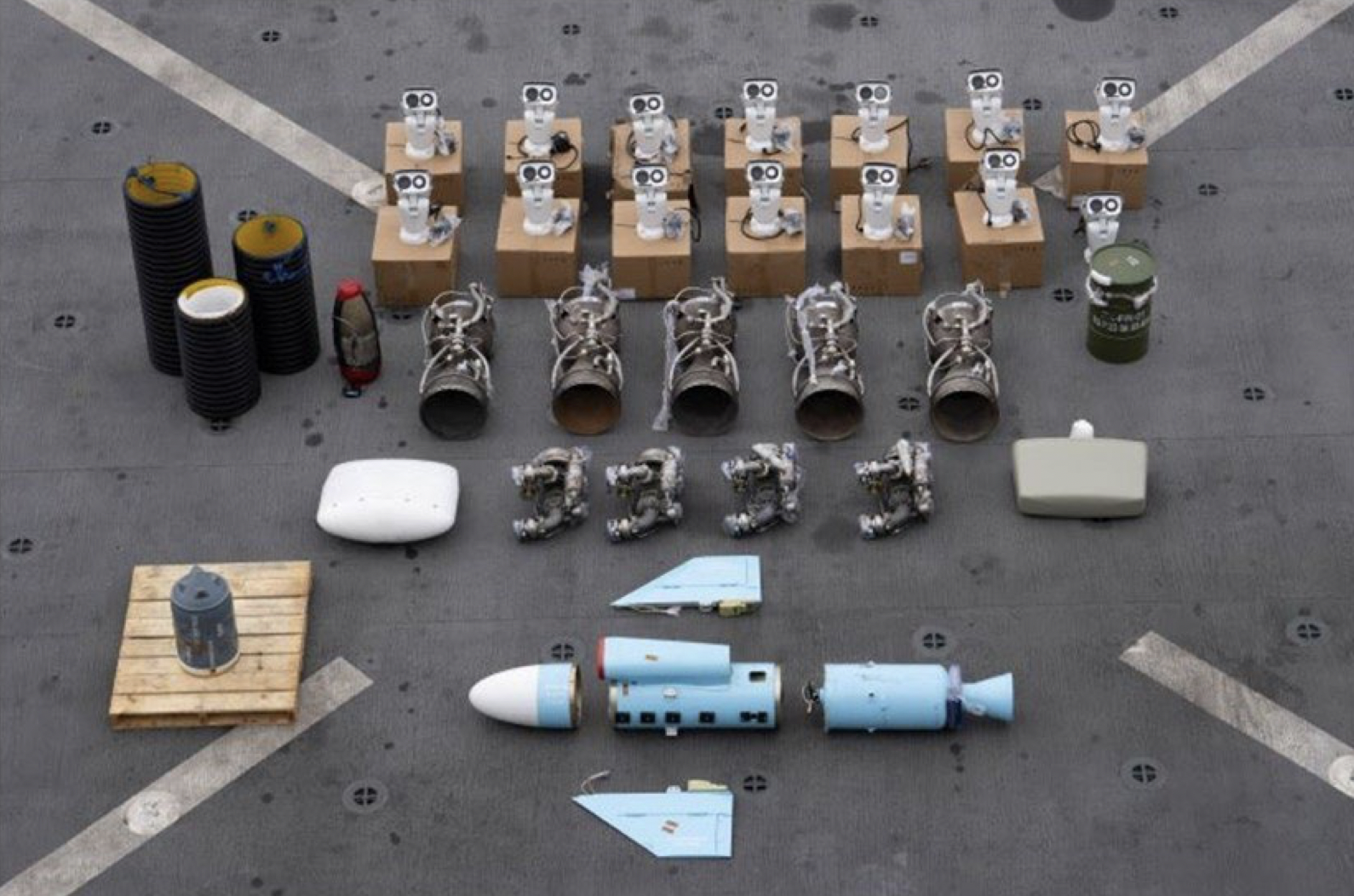

Four foreign nationals were charged with transporting alleged Iranian-made weapons discovered during an interdiction in the Arabian Sea last month that resulted in two Navy SEALs dying, according to U.S. officials.
The Department of Justice’s criminal complaint unsealed Thursday alleges the four defendants were transporting weapons consistent with those used by Houthi rebel forces and then lied to the U.S. Coast Guard when they boarded the vessel.
On Jan. 11, U.S. Navy forces, including Navy SEALs and members of the U.S. Coast Guard Maritime Security Response Team East, boarded an unflagged dhow in the Arabian Sea off the coast of Somalia with the help of helicopters and unmanned aerial vehicles.
The U.S. boarding team encountered 14 individual mariners on the vessel. During the search, the U.S. team allegedly seized Iranian-made advanced conventional weaponry – the first seizure of lethal, Iranian-supplied advanced weapons to the Houthis since their attacks began in November.
Preliminary analysis found that the seizure included a warhead, propulsion, and guidance components for medium-range ballistic missiles and anti-ship cruise missiles, according to the DOJ. It is the first seizure of lethal, Iranian-supplied advanced weaponry to the Houthis since their attacks began in November. Most or all of the weaponry was concealed inside tubing or in buoys, the complaint said.
An initial analysis by U.S. Central Command “indicates these same weapons have been employed by the Houthis to threaten and attack innocent mariners on international merchant ships transiting in the Red Sea,” according to court documents.
Subscribe to Task & Purpose today. Get the latest military news and culture in your inbox daily.
During the operation, the Navy brought the 14 mariners aboard the USS Lewis B. Puller after determining that the dhow was “unsafe and unseaworthy,” according to the complaint. The Coast Guard interviewed the crew who denied smuggling weapons. The SEALs found parts for medium-range ballistic missiles and anti-ship crew missiles and the dhow was sunk after the mission.
One of the mariners told U.S. officials that the dhow was located in Konarak, Iran before they left but was taken to Chah Bahar to get diesel fuel that night. Based on public source reporting from the Navy’s Office of Naval Intelligence, the Islamic Republic of Iran Navy operates a naval base in Chah Bahar, according to the DOJ.
On Feb. 11, the U.S. obtained arrest warrants for four of the mariners — Muhammad Pahlawan, Mohammad Mazhar, Ghufran Ullah, and Izhar Muhammad who were allegedly found with Pakistani identification cards. U.S. officials have also obtained 10 material witness warrants for the remaining mariners.
The four defendants and eight of the 10 material witnesses made an initial appearance before a U.S. Magistrate Judge in Richmond Thursday.
Pahlawan is charged with intentionally and unlawfully transporting a warhead, knowing it could be used by the Houthi forces against commercial vessels in the Red Sea and surrounding waters. He faces a maximum of 20 years in prison for transporting a warhead.
All four are charged with providing materially false information to the Coast Guard officers – including whether Pahlawan was the ship’s captain. They face a maximum penalty of five years.
Little public information had been released about how the Navy SEALs went missing during the interdiction. But the complaint said that one SEAL slipped off a ladder while boarding the dhow and the other jumped into the water to try to rescue him. Both SEALs were presumed dead after 10 days of searching more than 21,000 square miles of ocean.
“Two Navy SEALs tragically lost their lives in the operation that thwarted the defendants charged today from allegedly smuggling Iranian-made weapons that the Houthis could have used to target American forces and threaten freedom of navigation and a vital artery for commerce,” Deputy Attorney General Lisa Monaco said in a release.
The SEALs were part of a team of Navy special operators who conducted a nighttime boarding mission of a dhow near the Somali coast that was transporting weapons from Iran to the Houthis as part of their attacks on merchant shipping, according to U.S. Central Command. Since mid-October, Iranian-backed militias, including the Houthis, have launched hundreds of attacks on commercial ships and on U.S. troops based in Iraq and Syria.
Earlier this week, the Houthis fired two anti-ship ballistic missiles at a Greek-flagged, U.S.-owned bulk carrier delivering grain to Aden, Yemen, for the Yemeni people, according to CENTCOM.
The latest on Task & Purpose
- The Air Force wants retirees to help fill gaps in the service
- Navy allows sailors to put hands in pockets as hell freezes over
- The Army’s next-gen combat helmet is now arriving with soldiers
- Navy now allows sailors to wear leggings under PT shorts
- Legendary Marine Scout Sniper Chuck Mawhinney dies at age 75